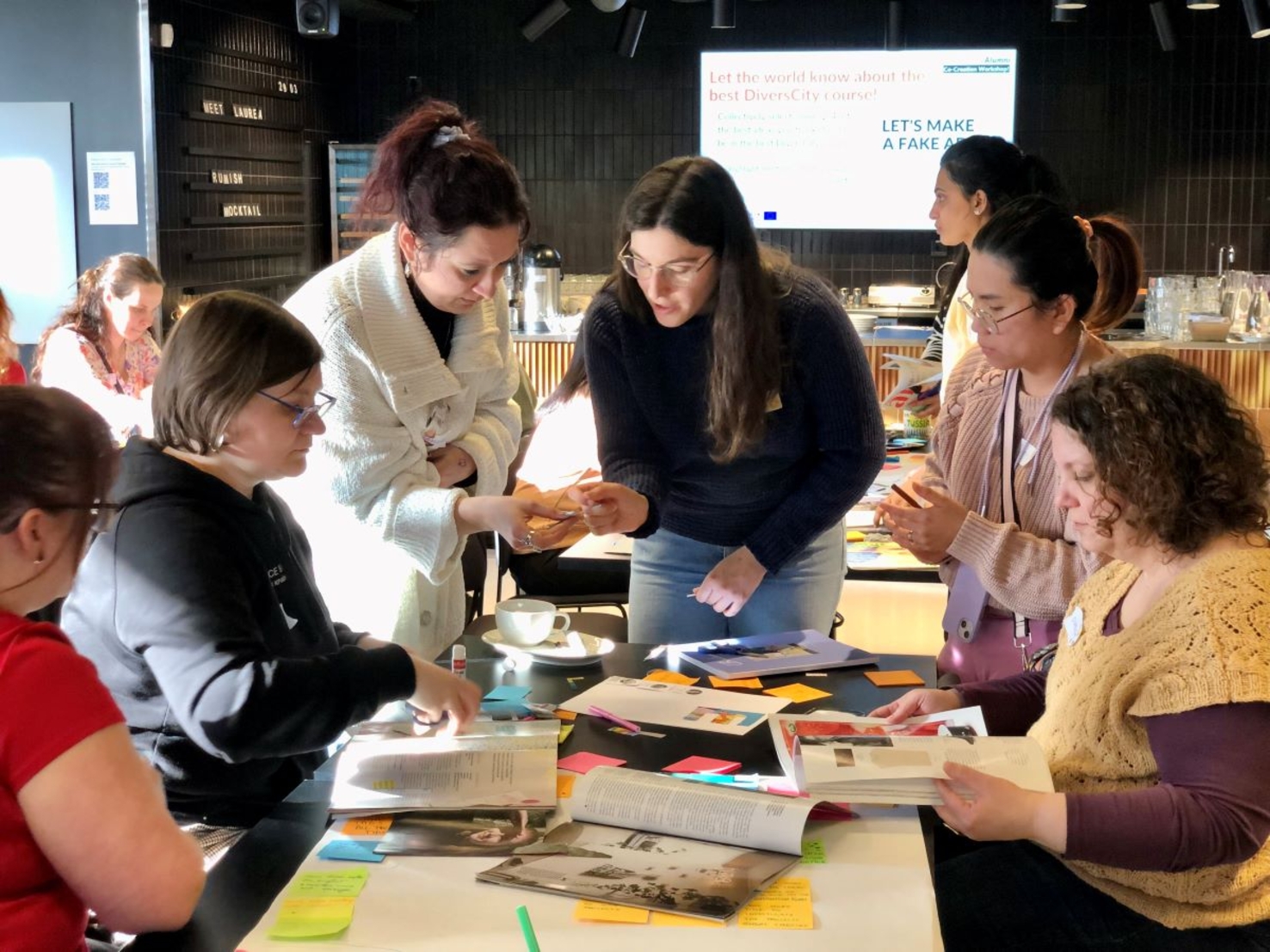Service design training as a way to promote the employment of immigrant women with higher education
The DiversCity project coordinated by Laurea focused on the challenges faced by immigrant women in becoming employed in Finland.

The DiversCity project coordinated by Laurea focused on the challenges faced by immigrant women in becoming employed in Finland. The continuing education course in service design implemented in the project opened up new job opportunities for many and promoted their integration into the Finnish labour market and society.
The DiversCity project coordinated by Laurea University of Applied Sciences focused on the challenges faced by immigrant women in becoming employed in Finland. The continuing education course in digital service design implemented in the project opened up new job opportunities for many and thus promoted their integration into the Finnish labour market and society at large.
The problems related to finding employment encountered by immigrant women and the challenges of diversity and inclusion on the Finnish labour market served as a starting point for the DiversCity project implemented at Laurea University of Applied Sciences. According to studies, the employment rate of women who have immigrated to Nordics is lower in Finland than in the other Nordic countries. It also falls behind men who have immigrated to Finland.
Studies indicate that there are many reasons for the challenges women face when seeking employment. In Finland, women typically work in fields where good Finnish skills are needed. On the other hand, for women who have immigrated to Finland staying at home with the help of child home care allowance may appear as an attractive option. Discrimination in the labour market may also make it more difficult for immigrants to find employment.
The DiversCity project offered solutions to employment challenges by training immigrant women into experts in digital service design. A total of 91 immigrant women with a higher education degree and no employment living in the Helsinki Metropolitan Area participated in the training. There were 21 organisations involved in the training programme, offering service design development assignments to the students. The assignments were related to, among other things, communications, the development of digital services or the mapping of new customer groups.
- The aim of the project was to establish an understanding of how diversity could benefit Finnish businesses. In the project, the cooperation between immigrant women and Finnish organisations produced innovative service concepts and generated shared understanding, says Project Manager Salla Kuuluvainen.
- The project gave the organisations involved a deeper understanding of the experiences immigrants have and made them reflect on the possibility of developing a multilingual working environment. In addition, cooperation between immigrant women and Finnish organisations produced innovative service concepts, such as improved inclusion communication for the City of Helsinki, Kuuluvainen said.
When working on the development assignments, the women participating in the training programme learned service design skills, i.e., user-centred service and process development using various methods. Many of them found employment shortly after the training. Service design benefits a wide range of organisations, as it focuses on customers and the customer experience. Service design experts are in great demand on the Finnish labour market.
- The project improved the women's experience of participation, hope for the future and professional self-confidence. The students were employed in such positions as customer success manager and customer sales manager, theatre producer, service designer, journalist, business development expert and data analyst. One of the participants started studying service design in Laurea's degree programme, Kuuluvainen said.
Laurea implemented the DiversCity project in collaboration with South-Eastern Finland University of Applied Sciences XAMK and Nicehearts ry. The project was funded by the European Social Fund as part of the European Union measures implemented in response to the COVID-19 pandemic.
More information:
- Salla Kuuluvainen
- Specialist
- Salla.Kuuluvainen@laurea.fi
- Tel 0505337078